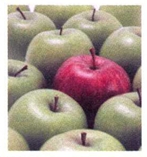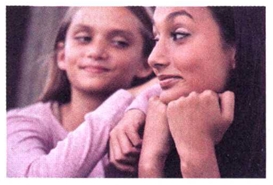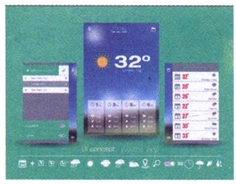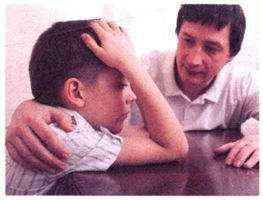3 用本课新学的语言点和词语描述图片
Describe the pictures using the newly-learned language points and words.

Lǜ píngguǒ bǐ hóng píngguǒ
绿 苹果 比 红 苹果________。

Jiějie bǐ wǒ
姐姐比我________。

Zuótiān sānshíwǔ dù, jīntiān
昨天 35°, 今天
méiyǒu
没有________。

Gēge xuéxí hěn hǎo, wǒ méiyǒu
哥哥学习 很 好,我 没有________。
语音 Pronunciation
正反问句的句调 Intonation of an Affirmative-Negative Question
句中肯定部分重读,否定部分轻读,肯定否定重叠部分语速较快,重音后语调逐渐下降。
The affirmative part is stressed and the negative part is unstressed. The affirmative-negative phrase is read fast, and the intonation falls gradually after the stress.
Míngtiān nǐ qù bu qù yínháng?
(1)明天 你 去不去 银行?
Zhè jiàn yīfu nǐ xǐhuan bu xǐhuan?
(2)这 件衣服你 喜欢 不 喜欢?
Shíyī diǎn duō le, nǐ shuì bu shuì jiào?
(3)十一点 多了,你 睡 不 睡 觉?
汉字 Characters
汉字偏旁 “疒” 和 “冫” Chinese Radicals: “疒” and “冫”
| 偏旁 Radical | 解释 Explanation | 例字 Example Characters |
|---|---|---|
| 疒 | 病字头,一般与疾病有关。 The radical “疒” is usually related to diseases. |
病 bìng disease; to be ill 疯 fēng mad, crazy |
| 冫 | 两点水,一般与冰、寒冷有关。 The two – drop radical “冫” is usually related to ice or coldness. |
冷 lěng cold 冰 bīng ice |
运用 Application
1 双人活动 Pair Work
两人一组,用 “比” 字句练习说句子。一个同学说肯定句,另一个同学把肯定句变成否定句。例如:
Work in pairs and make sentences with “比”. One says an affirmative sentence and the other turns it into a negative one. For example:
| 肯定句 Affirmative | 否定句 Negative |
|---|---|
| 西瓜比苹果大。 Xīguā bǐ píngguǒ dà. |
苹果没有西瓜大。 Píngguǒ méiyǒu xīguā dà. |
2 小组活动 Group Work
把全班学生分成两个大组,每组学生轮流用 “比” 字句说句子。句子的内容要和班里的实际情况相符合。例如:
Divide the whole class into two big groups. Students in each group take turns to say a “比” sentence about an actual situation of the class. For example:
| A组 Group A | B组 Group B | |
|---|---|---|
| 1 | 我的眼睛比安妮(B组学生)大。 Wǒ de yǎnjing bǐ Ānni dà. |
我的手机比大卫(A组学生)的贵三百块钱。 Wǒ de shǒujī bǐ Dàwèi de guì sānbǎi kuài qián. |
| 2 | ||
| 3 | ||
| 4 |

评论